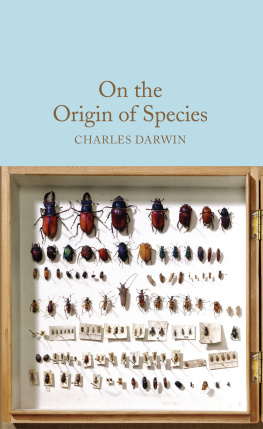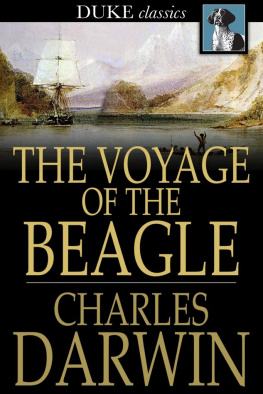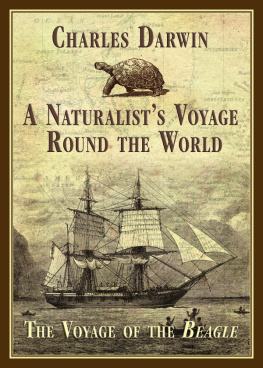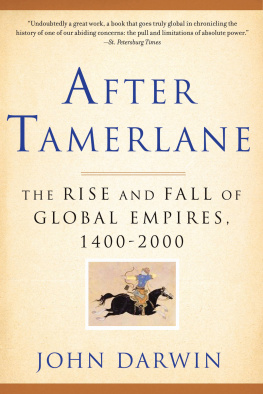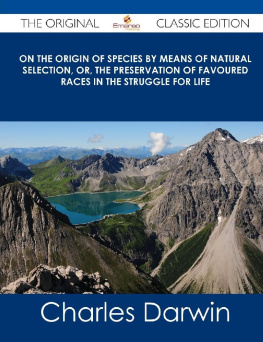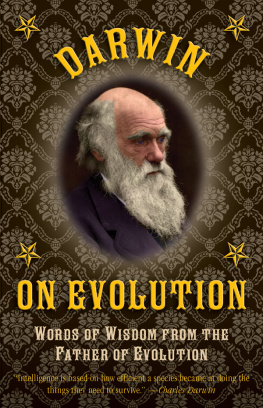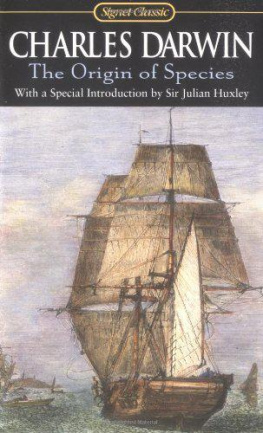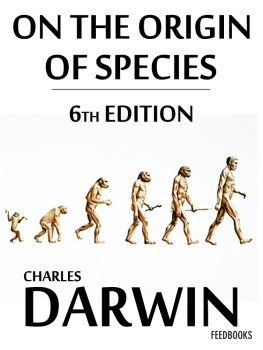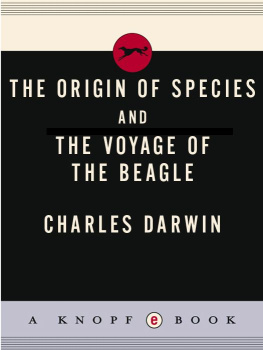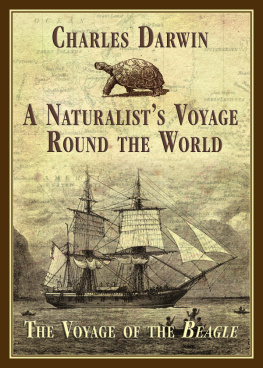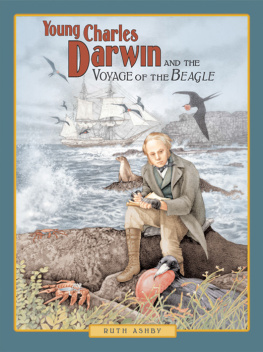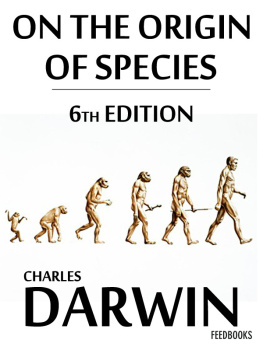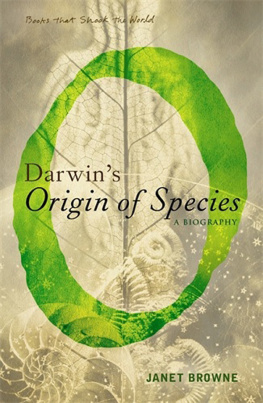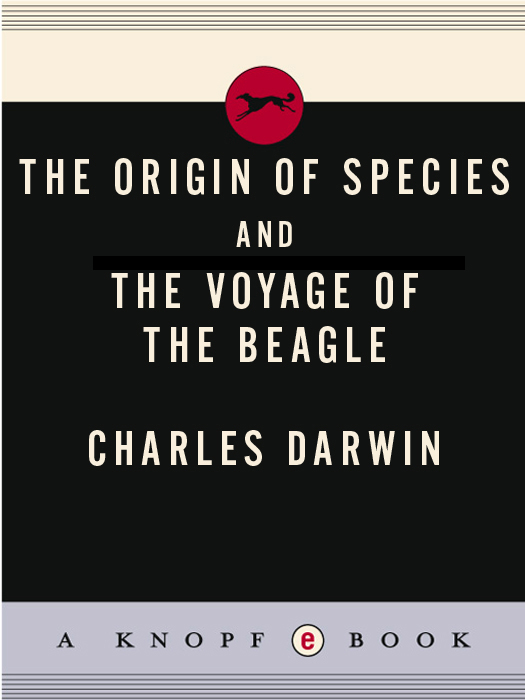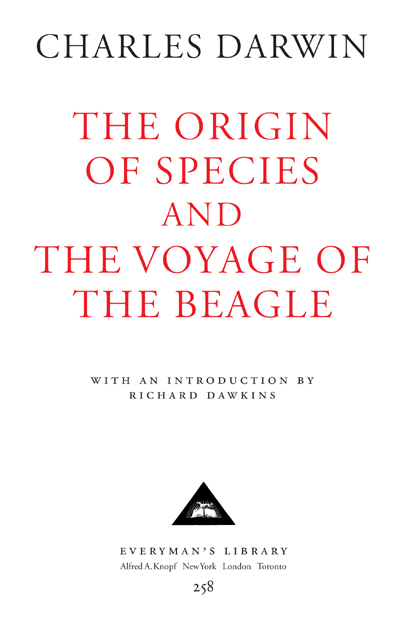EVERYMANS LIBRARY
EVERYMAN ,
I WILL GO WITH THEE ,
AND BE THY GUIDE ,
IN THY MOST NEED
TO GO BY THY SIDE
THIS IS A BORZOI BOOK
PUBLISHED BY ALFRED A. KNOPF
The Voyage of the Beagle first included in Everymans Library, 1906
The Origin of Species first included in Everymans Library, 1928
Introduction, Bibliography and Chronology Copyright 2003 by Everymans Library
All rights reserved under International and Pan-American Copyright Conventions. Published in the United States by Alfred A. Knopf, a division of Random House, Inc., New York, and simultaneously in Canada by Random House of Canada Limited, Toronto. Distributed by Random House, Inc., New York. Published in the United Kingdom by Everymans Library, Northburgh House, Northburgh Street, London EC1V 0AT, and distributed by Random House (UK) Ltd.
US website: www.randomhouse/everymans
eISBN: 978-0-307-82420-2
Library of Congress Cataloging-in-Publication Data
Darwin, Charles, 18091882.
The origin of species; and, The voyage of the Beagle/Charles Darwin; with an introduction by Richard Dawkins.
p. cm.(Everymans library)
Reprint of 2 works: First work originally published: On the origin of species by means of natural selection. London: J. Murray, 1859; 2nd work originally published: Journal of researches into the natural history and geology of the various countries visited by H.M.S. Beagle, London: H. Colburn, 1839.
Includes bibliographical references (p.).
ISBN 1-4000-4127-9 (hc.: alk. paper)
1. Evolution (Biology) 2. Natural selection. 3. Beagle Expedition (18311836) 4. Natural history. 5. Geology. 6. South-AmericaDescription and travel. 7. Voyages around the world. I. Darwin, Charles, 18091882. Voyage of the Beagle. II. Title.
QH365.O2 2003
576.82dc21 2003049220
v3.1
CONTENTS

INTRODUCTION

Suppose we measure the power of a scientific theory as a ratio: how much it explains divided by how much it needs to assume in order to do that explaining. By this criterion, Darwins theory of evolution by natural selection is second to none. Think of what it explains and I really mean explains in the fullest sense of the word: your existence and mine; the form, diversity, and apparently designed complexity and elegance of all living things, not only on this planet but probably wherever in the universe organized complexity may be found. The explanatory work that the theory does, then the numerator of the ratio is immense. But the theory itself the denominator could hardly be smaller or more simple; you can write it out in a phrase: Non-random survival of randomly varying hereditary elements. That isnt quite how Darwin himself would have put it (he phrased it in terms of the survival and reproduction of individual organisms). But it captures the essence of his idea in a way that I am convinced he would recognize and, indeed, enjoy if he were alive today.
We can probably pare the denominator down even further, to a single essential: heredity. Given that there exists a system of high fidelity copying, two things will follow immediately: there will be a population of the entities copied; and, since no copying process is perfect (there is mutation, in other words), they wont all be exactly the same. It then follows that successful hereditary types will tend to increase in number at the expense of unsuccessful hereditary types. That is probably all that is needed for life to get going and, given enough time, to evolve living machinery whose complexity and diversity progresses without obvious limit.
Consider where we would be without Darwins idea. Wed presumably have some sort of science of biology. Students would take degrees in the subject, books would be written, Nobel prizes in physiology and medicine would be won. We might know in some detail how living organisms work; wed know that a human body is a teeming army of cells, a thousand times more numerous than the people in the world; wed know that every one of these cells is a mass-production molecule-factory packed with the membranous equivalent of miles of sophisticated conveyor belt. Wed know a great deal about how our bodies work, and how the bodies of shrimps, elephants and redwood trees work. Wed be compelled to recognize how complicatedly organisms are fitted to survive in their particular worlds. But we wouldnt have the foggiest idea why. Wed read volumes about living things but we wouldnt have a clue about where they came from originally nor why they work so efficiently and purposefully. It would undoubtedly be the most baffling problem in biology probably in the whole of science and the whole of philosophy. This was the problem that Darwin decisively solved. We are now as certain as one can ever be in science that a version of Darwins solution is the correct one.
The Darwinian solution to the riddle of existence is so powerfully simple, so felicitous to the modern mind, that it is hard for us to understand why it had to wait until the mid-nineteenth century before anyone thought of it. It is further surprising and probably telling that this great inspiration, which looks so elegant from the modern armchair, eluded centuries of philosophers, mathematicians and polymaths. Plato and Aristotle never even got close, fooling about with essences and ideal forms; Leibnitz and Newton gave us calculus (which might seem a more exacting intellectual achievement) but not an inkling of the reason for our own existence; Hume would surely have recognized the idea as a great one if it had occurred to him, but it never did. Having eluded this galaxy of all-time talent, the answer finally came, almost simultaneously, to two English naturalists. Darwin and Wallace, they alone, thought of it.
For we must not forget Alfred Russel Wallace. This happens to Wallace quite often, I am afraid. He tends to get a poor deal at the hands of posterity, partly through his own generous nature. It was Wallace himself who coined the word Darwinism, he regularly referred to it as Darwins theory and he referred to himself as more Darwinian than Darwin. The main reason we know Darwins name more than Wallaces is that Darwin went on, a year later, to publish The Origin of Species. The Origin not only explained and advocated the Darwin/Wallace theory of natural selection as the mechanism of evolution. It also and this had to be done at book length set out the multifarious evidence for the fact of evolution itself.
Given the failure of great philosophers and other thinkers throughout history to tumble to the breathtakingly powerful yet simple principle of natural selection, it is worth attending to the story of Darwin and Wallace, in case the similarities between them are revealing. The drama of how Wallaces letter arrived at Downe House on 18 June 1858, casting Darwin into an agony of indecision and worry, is too well known for me to retell it. In my view the whole episode is one of the more creditable and agreeable in the history of scientific priority disputes precisely because it wasnt a dispute, although it so very easily could have become one. It was resolved amicably, and with heartwarming generosity on both sides, especially, I must say, on Wallaces. As Darwin later wrote:


